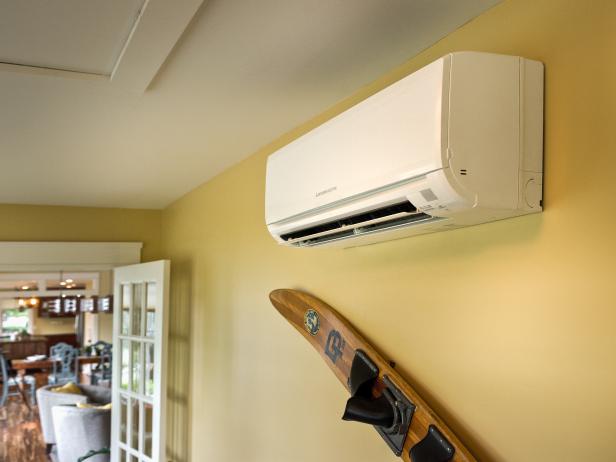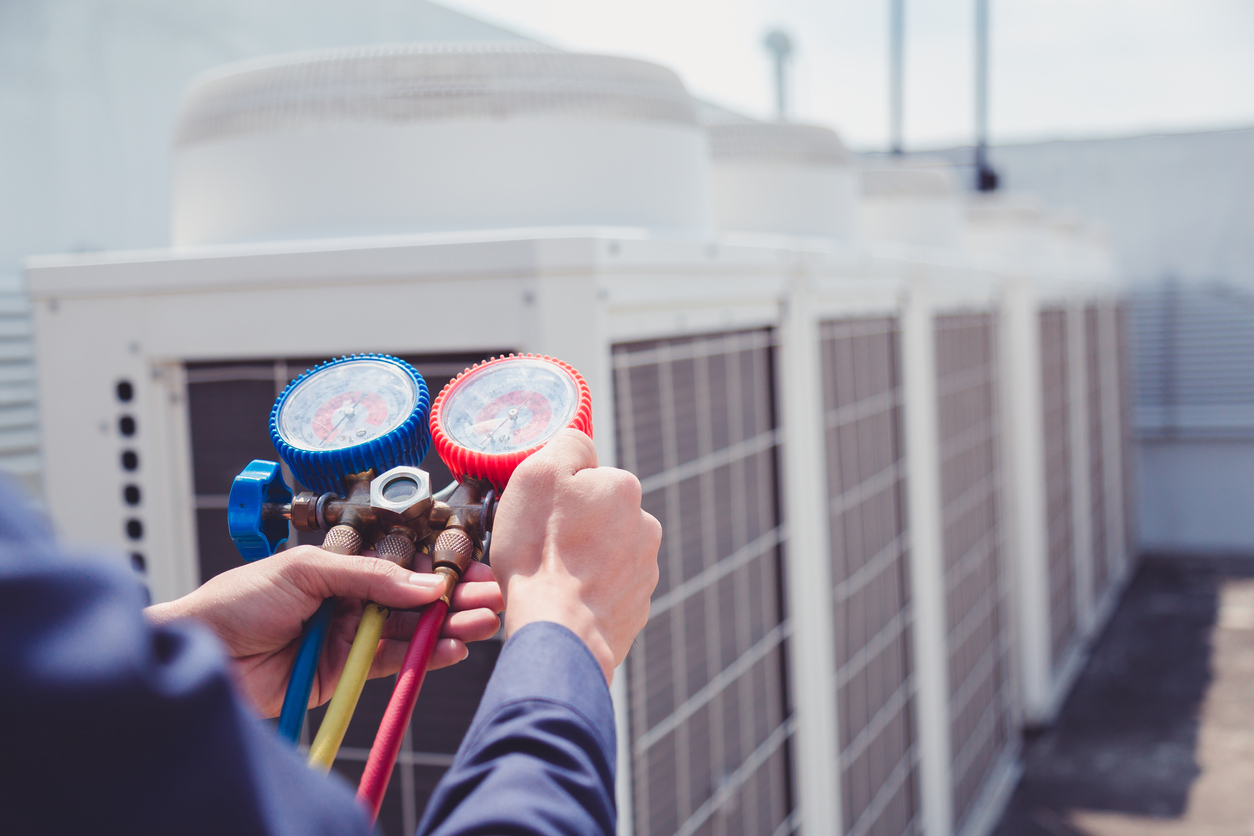When it concerns your air conditioning unit, addressing water leakages is like placing a bandage on an injury - necessary for peak functioning. Wondering why your air conditioner is trickling water? Allow's explore the surprise reasons behind this usual issue, unravel sensible options to fix leakages, and recognize the relevance of prompt repair services.
Stay tuned to reveal the secret to keeping a cool, leak-free atmosphere in your house.
Secret Takeaways
- Routine upkeep stops air conditioning water leakages by unclogging drain lines.
- Timely repair work and inspections prolong unit life-span and avoid mold development.
- DIY troubleshooting consists of examining filters, pumps, and condensate lines.

- Professional support guarantees correct drain and addresses underlying problems efficiently.
Usual Root Causes Of AC Water Leaks
One usual factor your air conditioning device might be leaking water is because of a clogged up condensate drainpipe line. To avoid this problem, regular upkeep is important. You can prevent blockages by occasionally purging the drain line with a combination of bleach and water. This basic maintenance suggestion assists maintain the line clear, enabling water to stream openly and decreasing the risk of leakages.

If you notice water pooling around your AC unit, it is necessary to address the trouble without delay. Disregarding the issue can bring about water damage and mold and mildew development. In some cases, you may require professional assistance to unclog the drainpipe line properly. An accredited professional can inspect your system, clear any kind of blockages, and make sure correct drainage.
How to Identify a Water Drip
If you see water pooling around your a/c device, an usual sign of a leakage, it is essential to without delay recognize the resource of the issue. Leak detection is vital in protecting against more damage to your a/c system. Start by checking for any kind of visible indications of water leakage, such as pools or leaks around the unit. Inspect the drainpipe line for obstructions or blockages that may be causing water to support. Additionally, search for any kind of cracks or openings in the condensate pan that might be permitting water to get away.
Condensation monitoring is an additional crucial aspect of determining a water leakage. Ensure the condensate line is effectively connected and draining pipes as it should. Sometimes, incorrect setup or damages to the line can lead to leakages. Check the insulation around the line as well, as any wear and tear could create condensation to develop in unintentional locations.
DIY Troubleshooting Tips
Wondering just how you can troubleshoot water leaks from your air conditioning device by yourself? Right here are some DIY fixing ideas to help you address the issue properly:
- Examine the Filter: Beginning by examining and cleaning the air filter. A stopped up filter can restrict airflow, bring about ice build-up and at some point creating water leakages.
- Evaluate the Condensate Pump: See to it that the condensate pump, responsible for eliminating excess wetness, is working properly. If it's not functioning, water might accumulate and leakage.
- Seek Blockages: Look for any type of obstructions in the condensate drain line. Particles or algae buildup can impede correct drain, resulting in leakages.
- Check Out the Cooling Agent Levels: Low cooling agent levels can create the evaporator coil to ice up, causing water leakage. If you believe this concern, call a professional for help.
- Monitor the Thermostat Settings: Incorrect thermostat setups can cause the system to run longer than needed, potentially causing excessive condensation. Readjust the settings to make sure peak performance and stop leakages.
Importance of Timely Fixes
Addressing water leakages from your air conditioning unit quickly is necessary to prevent additional damages and keep peak efficiency. Prompt repairs offer considerable benefits, including expanding the life-span of your device, enhancing power efficiency, and avoiding costly water damage to your building. Disregarding these leakages can bring about mold and mildew growth, structural damage, and possible carcinogen.
To ensure your a/c system operates efficiently, routine upkeep is necessary. Basic maintenance suggestions such as cleaning or changing air filters, checking for clogged drainpipe lines, and evaluating the condensate pan can assist protect against water leakages. Furthermore, scheduling expert evaluations at the very least yearly can capture any kind of prospective problems at an early stage and prevent them from escalating right into significant problems.
Protecting Against Future Water Leakages
Interested just how you can proactively stop future water leakages from your cooling device? Here are some important actions to aid you keep your system and prevent prospective issues:
- Regular Maintenance Schedule: Establish a routine upkeep timetable with an expert HVAC technician to ensure your device is properly evaluated and serviced.
- Clean the Condensate Drainpipe: Frequently check and cleanse the condensate drain to prevent obstructions that can result in water leaks.
- Evaluate Insulation: Inspect the insulation around your air conditioning system to ensure it's undamaged and properly sealed, stopping condensation build-up.
- Replace Air Filters: Regularly replace or tidy air filters to stop dirt and debris from blocking air movement and creating leaks.
- Monitor Water Degrees: Watch on the water degrees in the condensate frying pan to discover any type of uncommon rises, showing a possible concern that needs focus.
Often Asked Questions
Can Water Leaks From an Air Conditioning System Reason Damages to the Surrounding Walls and Floors?
Water leaks from any type of home appliance can lead to major damage. Shielding your flooring is very important when handling leaks.
Execute safety nets to stay clear of prospective concerns. Waterproofing services can aid prevent substantial wall surface damages.
Be proactive in addressing leakages to guard your home's structure.
Exist Any Health And Wellness Risks Related To Water Leaks From an A/c Device?
When it pertains to wellness implications, water leaks from your a/c system can result in mold and mildew development, which can cause allergic reactions and respiratory system issues. To avoid this, warranty regular upkeep of your unit and promptly address any kind of leaks.
Additionally, be cautious about indications of water damage, as it can jeopardize your interior air high quality. Routinely checking for leakages and addressing them quickly can assist keep a healthy and balanced living environment.
How Can I Establish if the Water Leak From My AC Device Is a Minor Concern or a Significant Problem Requiring Professional Repair Work?
When reviewing water leakages from your AC unit, you can begin with DIY troubleshooting like checking for obstructions or leaks in the drainage system. If issues continue, it's important to contemplate a professional examination for an extra exact medical diagnosis.
While fast solutions may provide temporary relief, long-term solutions usually call for the expertise of a trained professional to avoid future problems and assure your system's ideal performance.
Is It Feasible for Mold or Mildew to Develop as an Outcome of a Water Drip From an Air Conditioning Unit?
Yes, mold avoidance is essential when dealing with water leaks from your cooling device. air conditioner not cooling Routine maintenance and leakage discovery are vital to avoid mold or mildew development.
Exist Any Type Of Prospective Electrical Risks That Can Develop From Water Leakages in a Cooling Unit?
Possible risks from water leakages in an a/c device can include electrical security threats. When water comes into contact with electric elements, it can bring about brief circuits, electrical fires, or damages to the unit.
It's crucial to deal with any type of leaks without delay to avoid these dangers. Normal maintenance and examinations can help you determine and settle any kind of concerns before they rise right into more considerable issues.
Final thought
Don't ignore water leakages from your AC device. Addressing them quickly can ensure costly damage and make sure your system runs efficiently.
Bear in mind to regularly inspect your unit, tidy the condensate line, and replace filters as required. Taking these simple actions can assist you avoid prospective headaches later on and maintain your home cool and comfortable.

Keep positive and maintain your air conditioning in leading shape!
